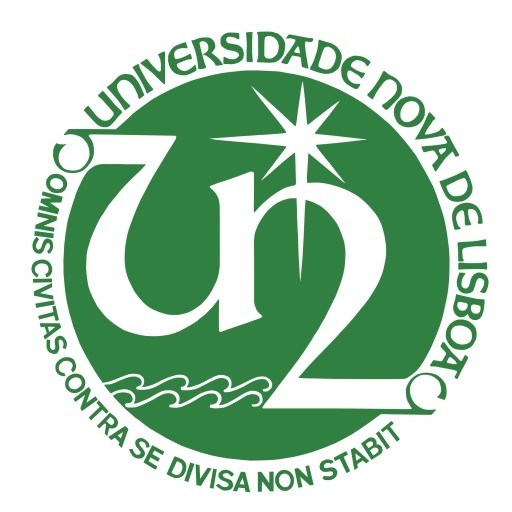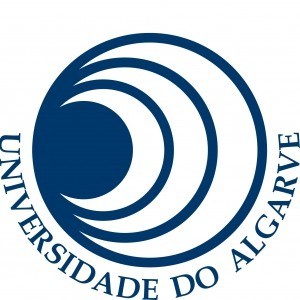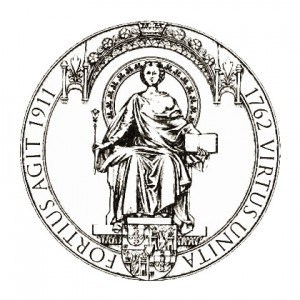Program Description:
The Bachelor’s Degree in Glass Art and Science at NOVA University Lisbon offers students a unique interdisciplinary educational experience that combines the artistic and scientific aspects of glass as a material. This program is designed for students passionate about exploring the creative potential and technical complexities of glass art, while gaining a solid foundation in the scientific principles underlying glass production and manipulation. Throughout the course, students will engage in hands-on practical training, theoretical studies, and innovative research, fostering their development as both skilled artisans and knowledgeable scientists in the field of glass technology.
The curriculum covers a broad range of topics, including the history and cultural significance of glass, artistic techniques, material science, chemistry, physics, and engineering related to glass fabrication. Students will learn diverse techniques such as blowing, casting, shaping, and designing glass objects, as well as understanding the properties and behaviors of different types of glass and related materials. Emphasis is placed on sustainable practices, technological innovation, and the integration of contemporary artistic approaches with scientific methods.
Throughout their studies, students will have access to state-of-the-art facilities, including specialized workshops and laboratories equipped with the latest tools and technologies for glassmaking and experimentation. The program encourages creative inquiry and experimental approaches, enabling students to develop their own artistic voice while acquiring essential scientific knowledge to innovate and improve glass techniques.
The program prepares graduates for diverse careers within the glass industry, including artistic creation, production management, research and development, conservation, and education. Graduates will be equipped with both artistic skills and scientific expertise, making them versatile professionals capable of contributing to cultural, technological, and industrial advancements in the field of glass art and science.
Partnerships with industry professionals, galleries, museums, and research institutions provide students with valuable networking opportunities, internships, and real-world project experience. The program also emphasizes critical thinking, problem-solving, and project management skills, fostering a comprehensive educational environment that promotes personal and professional growth. Upon successful completion of the program, students will earn a recognized bachelor's degree, qualifying them to pursue further specialization, research, or professional practice within the dynamic and evolving field of glass art and science.
The Bachelor’s Degree in Glass Art and Science at NOVA University Lisbon offers a comprehensive and interdisciplinary curriculum designed to cultivate both artistic creativity and scientific understanding of glass as a material. This unique program bridges the worlds of fine arts, engineering, and material science, providing students with a well-rounded education that prepares them for diverse careers in art, industry, research, and conservation. Throughout the course, students explore the technical aspects of glass production, including traditional techniques such as glass blowing, casting, lampworking, and fused glass, alongside modern methods like digital design and experimentation with new materials. Emphasizing both the artistic expression and scientific principles underlying glass fabrication, the program encourages innovation, craftsmanship, and critical thinking.
Students will engage in hands-on workshops, studio practice, and research projects that deepen their understanding of the physical and chemical properties of glass. They will learn about the history and cultural significance of glass across different civilizations, fostering a contextual appreciation of the material's role in art and society. The curriculum integrates coursework in physics, chemistry, and materials science with studio art courses in sculpture, design, and visual communication, ensuring a multidisciplinary approach. Additionally, students will develop skills in project management, technical drawing, and digital modeling, enabling design and production of complex glass artworks.
Through collaborations with industry partners, museums, and artisan workshops, students gain real-world experience and opportunities for internships that prepare them for professional practice. The program also encourages participation in exhibitions and competitions, helping students build a portfolio and establish networks in the art and design communities. Upon graduation, students will be equipped to pursue careers as studio artists, industrial designers, conservation specialists, or researchers in glass technology. They will also possess the technical skills necessary for entrepreneurship, contributing to sustainable and innovative applications of glass in various fields. The Glass Art and Science program at NOVA Lisboa aims to foster a new generation of versatile professionals who can merge artistic vision with scientific rigor to shape the future of glass art and industry.
Program requirements for the Bachelor in Glass Art and Science at NOVA University Lisbon include a combination of general admission criteria, pre-requisite knowledge, and specific competencies relevant to the field. Applicants must possess a high school diploma or equivalent qualification recognized by the Portuguese education system. Proficiency in the Portuguese language is required, and additional language proficiency in English may be necessary for international students, typically demonstrated through standard tests such as IELTS or TOEFL.
Candidates are expected to have a strong foundation in arts, sciences, and technology, including a good understanding of basic physics, chemistry, and artistic principles. Prior experience or demonstrated interest in glass art, sculpture, materials science, or related disciplines can be advantageous but is not obligatory. The program encourages applicants who have completed coursework or projects related to visual arts, design, or craftsmanship.
Participation in a portfolio review process may be part of the admission procedure, where applicants present their previous work in art or design to demonstrate their creativity, technical skills, and potential for success in the program. Furthermore, a personal statement outlining motivations for studying Glass Art and Science, relevant experiences, and career goals may be required to assess commitment and suitability.
Candidates must also meet the general health and safety regulations applicable to practical workshops and laboratories, as the program involves hands-on experimentation with glass materials, including melting, blowing, kiln-working, and cold-working techniques. Safety knowledge related to handling fragile materials and high-temperature equipment is essential.
The academic prerequisites generally include completion of foundational courses in arts and sciences, and applicants with a background in engineering or material sciences may have certain credits waived or transferred. The program emphasizes interdisciplinarity, so students are expected to demonstrate adaptability, a keen interest in exploring new materials and processes, and the ability to work collaboratively in team projects.
Applicants are advised to review the specific instructions on the official NOVA University Lisbon admissions webpage for detailed registration procedures, required documents, and deadlines. Admission decisions are based on a combination of academic credentials, portfolio presentation, motivation, and potential for creative and scientific development within the field of glass art and science.
The Glass Art and Science program at NOVA University Lisbon offers a variety of financing options to support students throughout their studies. Prospective students can apply for Portuguese government funding schemes, including grants and scholarships, which are available based on academic merit and financial need. These scholarships are provided by national agencies such as FCT (Fundação para a Ciência e a Tecnologia), which supports students engaged in research and advanced studies. Additionally, NOVA University Lisbon itself administers several institutional grants for both local and international students, encouraging diverse participation within the program.
International students may also explore support options from their home countries or attend bilateral agreements that facilitate financial aid or tuition reductions. Payment plans are often available, allowing students to divide tuition fees into manageable installments over the academic year, easing financial burdens. Moreover, some students may qualify for private scholarships or sponsorships provided by arts organizations, cultural foundations, or industry partners involved in glass art and science fields.
Students are encouraged to consult the university’s official website and contact the admissions or financial aid offices for detailed information about eligibility criteria, application procedures, and deadlines. The program’s high level of specialization in both technical and artistic aspects of glass art may also open opportunities for research grants or project funding, especially for students engaged in innovative or interdisciplinary projects. The university's commitment to inclusivity and access reflects in its ongoing efforts to provide comprehensive financial support mechanisms, ensuring that talented students from diverse backgrounds can participate fully in the program. Overall, the financing studies at NOVA University Lisbon aim to facilitate access to quality education in glass art and science, minimizing financial barriers and promoting academic excellence and creative development.
The Glass Art and Science program at NOVA University Lisbon offers a comprehensive curriculum designed to blend artistic creativity with scientific understanding. This interdisciplinary program aims to equip students with both practical skills in glass manipulation and a solid foundation in the scientific principles underlying glass technology. Throughout the course, students engage in various forms of artistic expression through glass, including blowing, casting, engraving, and assembling, fostering their creative potential and technical expertise. The program emphasizes the importance of innovation, originality, and craftsmanship, encouraging students to develop their personal artistic style while adhering to scientific safety standards and technical precision.
Students benefit from state-of-the-art facilities, including specialized laboratories with advanced glass-working equipment and tools, allowing them to experiment and refine their techniques in a professional environment. The program also incorporates theoretical courses covering materials science related to glass, thermal properties, chemical compositions, and environmental considerations. These courses aim to deepen students' understanding of the material's behavior, enabling them to design more durable, sustainable, and aesthetically appealing glass pieces.
In addition to technical training, the program emphasizes the historical, cultural, and theoretical aspects of glass art, helping students appreciate its significance across different cultures and periods. Collaboration with professional artisans and participation in exhibitions, workshops, and internships provide practical experience and networking opportunities, preparing graduates for careers in art studios, design companies, museums, and scientific research institutions. Ultimately, the program fosters a multidisciplinary approach, encouraging students to innovate at the intersection of art and science, pushing the boundaries of traditional glass creation and exploring new applications and methods. Graduates leave with a portfolio demonstrating their artistic and scientific capabilities, ready to contribute creatively and technically to the evolving field of glass art and science.


